
As we all know, as the largest internal organ of the human body, the liver maintains important functions of life and has always played the role of “the patron saint of human body”. Liver disease can cause problems such as reduced immunity, metabolic disorders, easy fatigue, liver pain, mauvais sommeil, perte d'appétit, diarrhée, and more serious problems such as “metabolic syndrome” that damages various organs of the body.
To have a healthy body, nourishing the liver is imperative. How to nourish the liver? Come and hear the views of Professor Lin Zhi-Bin, who has been engaged in research on Ganoderma for a long time.
Ganoderma’s protective effect on liver
Ganoderma lucidum has been regarded as a top-grade medicine for nourishing the liver since ancient times. According to “Compendium of Materia Medica”, “Ganoderma lucidum improves eyesight, nourishes liver qi, and calms the spirit.”
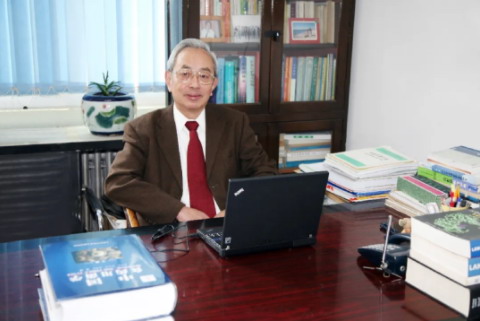
Lin Zhi-Bin, professor of the Department of Pharmacology, École des sciences médicales fondamentales de l'Université de Pékin
Professor Lin Zhi-Bin said in the program of “Master Talk”, “Ganoderma lucidum has a very good hepatoprotective effect.”
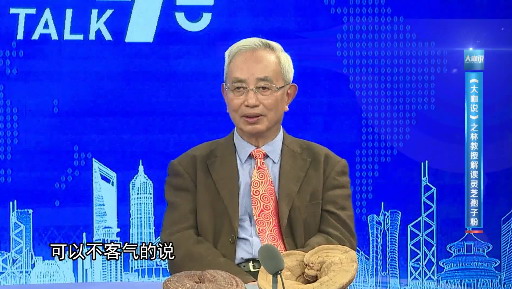
The curative effect of Ganoderma lucidum on protecting liver
Although Ganoderma lucidum has no direct antiviral hepatitis effect, il a des effets immunomodulateurs et hépatoprotecteurs, so it can be used as hepatoprotective and immunomodulatory drugs for the treatment and health care of viral hepatitis.
Dans les années 1970, La Chine a commencé à utiliser les préparations de Ganoderma lucidum pour traiter l'hépatite virale. Selon divers rapports, le taux effectif total était 73.1%-97.0%, et l'effet marqué (y compris le taux de guérison clinique) était 44.0%-76.5%. Its curative effect is manifested as reduction or disappearance of subjective symptoms such as fatigue, perte d'appétit, abdominal distension and pain in the liver area. In liver function tests, (ALT) revenu à la normale ou diminué. L'hypertrophie du foie et de la rate est revenue à la normale ou a diminué à des degrés divers. En général, Reishi’s effect on acute hepatitis is better than chronic hepatitis or persistent hepatitis.
Cliniquement, Ganoderma lucidum is combined with some drugs that can injure the liver, which can avoid or reduce liver injury caused by drugs and protect the liver. The hepatoprotective effect ofReishi is also related to its “tonifying liver qi” and “invigorating spleen qi” stated in ancient books of Chinese medicine. [The above text comes from Lin Zhi-Bin’s “Lingzhi, du mystère à la science”, Presse médicale de l'Université de Pékin, P66-67]
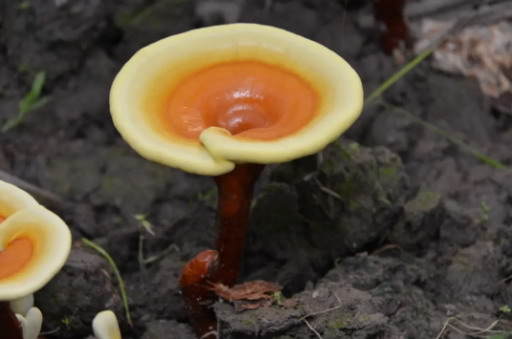
Since the early 1970s, Professor Lin Zhi-Bin has taken the lead in researching the pharmacological effects ofGanoderma lucidum and found that Ganoderma lucidum and its related products have multiple pharmacological effects such as liver protection, lowering blood lipids, abaisser la glycémie, régulation immunitaire, anti-tumoral, anti-oxydation, et anti-âge. If you want to know more about Professor Lin Zhi-Bin’s academic achievements in Ganoderma lucidum research, please pay attention to “Academic Seminar and New Book Release Conference on the 50th anniversary of Professor Lin Zhi-Bin’s Research on Lingzhi”!
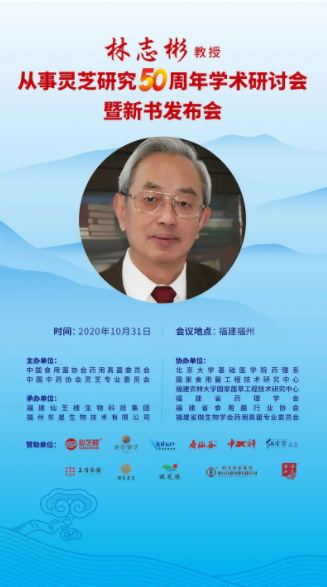
Introduction of Professor Lin Zhi-Bin
Lin Zhi-Bin was born in Minhou, Fujian. He graduated from the Medical Department of Beijing Medical College in 1961 and stayed there to teach. He successively served as teaching assistant, lecturer, associate professor and professor at Beijing Medical College (renamed Beijing Medical University in 1985 and Peking University Health Science Center in 2002), deputy dean of Peking University School of Basic Medical Sciences and director of the Institute of Basic Medicine, director of the Department of Pharmacology, and vice president of Beijing Medical University. Dans 1990, he was approved as a doctoral supervisor by the Academic Degree Commission of the State Council.
He successively served as a visiting scholar at the University of Illinois at Chicago, an honorary professor at the Perm Institute of Pharmacy in Russia, a visiting professor at the University of Hong Kong, an adjunct professor at the Medical College of Nankai University, and Guest professor of Ocean University of China, Harbin Medical University, Dalian Medical University, Shandong Medical University, Zhengzhou University and Fujian Agriculture and Forestry University.
He has served as Chairman of the Standing Committee of Apitherapy of the InternationalFederation of Beekeepers Association (APIMONDIA), a member of the Executive Committee of the International Union of Basic and Clinical Pharmacology(IUPHAR) and a member of the 2014-2018 Nominating Committee, and member of the Executive Committee of the Association of Pharmacologists in Southeast Asia and the Western Pacific (SEAWP), Chairman of the International Society of Ganoderma Research, Member of the National Committee of the Chinese Association for Science and Technology, Chairman of the Chinese Pharmacological Society, Vice Chairman of China Edible Fungi Association, Président honoraire de la Société pharmacologique chinoise, Deputy Director of Pharmaceutical Expert Advisory Committee of the Ministry of Health, Member of the National New Drug Research and Development Expert Committee, Member of the National Pharmacopoeia Committee, National Drug Review Expert, Member of the Review Group of the Department of Pharmacology of the National Natural Science Foundation of China, member of National Edible Fungi Engineering Technology Research Center, member of technical committee of experts of National Engineering Research Center of JUNCAO Technology, etc..
He successively served as editor-in-chief of “Journal of Beijing Medical University”, associate editor of “Acta Pharmacologica Sinica” and “Chinese Journal of Clinical Pharmacology and Therapeutics”, associate editor of “Chinese Pharmacological Bulletin” and “China Licensed Pharmacist”, editorial board member of “Acta Pharmaceutica Sinica”, “Chinese Pharmaceutical Journal”, “Chinese Journal of Integrated Traditional and Western Medicine”, “Chinese Journal of Pharmacology and Toxicology”, “Chinese Pharmacist”, “Acta Edulis Fungi”, “Progress in Physiological Sciences”, “Pharmacological Research” (Italy) , and advisory editorial board member of “Biomolecules & Therapeutics” (Korea) and “Acta Pharmacologica Sinica”.
He has long been engaged in research on the pharmacological effects and mechanism of anti-inflammatory drugs, immunomodulatory drugs, endocrine drugs and anti-tumor drugs, and participated in the development of many new drugs and health products. He is a well-known ganoderma research scholar at home and abroad.
He has won the second prize (1993) and third prize (1995) of the State Education Commission Science and Technology Progress Award (Class A), the second prize of the National Science and Technology Award nominated by the Ministry of Education (2003), and the second prize of Beijing Science and Technology Progress Award (1991) And the third prize (2008), the first prize of National Excellent Teaching Materials of Ministry of Health (1995), the second prize of Fujian Science and Technology Invention Award (2016), the third prize of Guanghua Science and Technology Award (1995), the Microbiology Culture and Education Foundation (Taipei) Excellence Achievement Award (2006), Third Prize of Science and Technology Progress Award of Chinese Association of the Integration of Traditional and Western Medicine (2007), etc..
Dans 1992, he was approved by the State Council to enjoy a special government allowance for experts with outstanding contributions. Dans 1994, he was awarded as a young and middle-aged expert with outstanding contributions by the Ministry of Health.
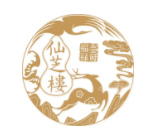
Transmettez la culture de santé millénaire
Contribuer au bien-être pour tous



